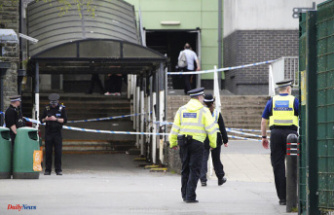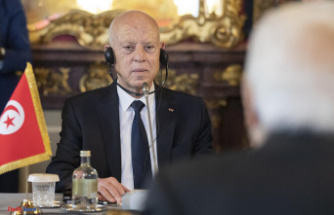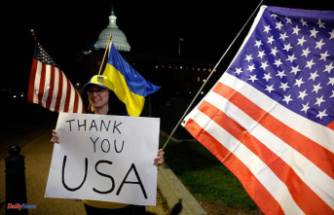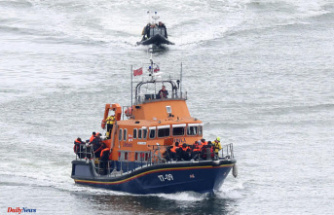Pride in London celebrates five decades of parades and celebrations to celebrate the LGBTQ+ community.
After a two year hiatus caused by the coronavirus pandemic, the central London parade will reopen on Saturday.
Around 2,000 people attended the first UK Gay Pride Rally in London on July 1, 1972. This was the Saturday closest to the third anniversary Stonewall riots.
Pride Day is celebrated in the UK by more than a million people. There are also events around the globe.
The Special Collections and Archives of Bishopsgate Institute contain one of the largest collections on LGBTQ+ politics, history, and culture in the UK.
Stef Dickers, Manager, stated to BBC News that "Recording LGBTQ+ history and archiving it is vital for future generations to be informed, inspired and empowered about their own past."
"We have missing voices of LGBTQ+ people in history narrative, due to the struggles & oppression that the community has experienced over the years.
"It is vital that our histories be recorded now, not only to show how far we've come in visibility and hard-won liberties but also to warn and arm communities for future struggles.
Ted Brown (pictured left) and Peter Tatchell (right), shared their thoughts on the first march. They said that there was a lot of men and women in drag kissing each other, and that men were also kissing each other.
He said, "It was an expression of freedom and rights."
"We did it in front of police almost as a challenge.
"Fortunately, nobody got arrested."
In 1976, Gay Pride Week saw a picnic at Victoria Gardens, near the Houses of Parliament.
Many images from the collection have never been displayed publicly.
Dickers stated that "these kinds of photo archives don’t exist anywhere else in this size and scope."
"Photo agencies have images of Prides that were taken by journalists, but these archives are photos from LGBTQ+ photographers who captured the community.
"This is powerful."
In 2003, Section 28 of 1988's Local Government Act, which prohibited schoolteachers from "promoting" homosexual relationships, was repealed.
1981 Pride marches were moved to Huddersfield in support of Gemini Club. Police had described it as "a cesspit full of filth".
The march was renamed Lesbian and Gay Pride in 1983.
2017: Mr Tatchell stated to BBC Newsround that "we have made incredible progress."
"Compared to 20 years ago, Britain is almost an entirely different country.
"All major anti-gay laws are gone.
"We are now one the most successful countries for gay equality in the world."
It is now illegal to discriminate against someone because of their sexuality, gender, or orientation. However, many gay people are subject to discrimination every day.
Tatchell stated that "there is great progress, but more needs to done."
"Public attitudes are more supportive, although there are still families that reject their gay children.
"We still have too many homophobic hate crimes, many children are still bullied, and a lot schools don't have anti-bullying programmes that specifically address anti-gay concerns.
"We want to see a world where everyone doesn't care about your sexuality, and where we can accept each person and their rights to love whomever they choose, male, female or both."
Pride 1992 was attended by Lily Savage, a drag queen (Paul O'Grady at the top centre).
"New additions to the archive arrive almost every day and we recommend anyone who wants to document and record their own LGBTQ+ history to get in touch," Mr Dickers stated.
"This year is an important milestone. We hope that people will share images of Pride to them through our People's Pride gallery.
"This could include attending Pride celebrations, but also moments of joy or celebration that make them proud to be who and what they are.
"It's not just limited to London, and we'd love for people from all parts of the UK to contribute."
Copyright is reserved for all images.












